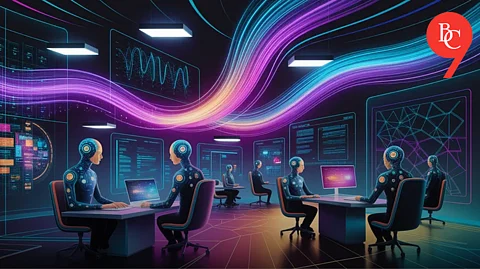

As artificial intelligence (AI) continues to transform education worldwide, India’s schools and colleges are embracing digital tools, smart classrooms, and personalized learning algorithms. Yet, even as AI-powered platforms become commonplace, experts and educators agree: certain aspects of teaching in India are deeply rooted in human connection, tradition, and empathy qualities that no machine can replicate.
Over the past decade, India has witnessed a surge in EdTech adoption. AI-driven apps now help students practice math, learn languages, and prepare for competitive exams. Virtual tutors, automated grading, and adaptive learning systems have made education more accessible and efficient, especially in remote or underserved regions.
The government’s Digital India initiative and the National Education Policy (NEP) 2020 have further accelerated this digital shift, with AI seen as a means to bridge gaps in teacher shortages and resource disparities.
AI excels at delivering content, analyzing data, and personalizing instruction. It can identify learning gaps, recommend resources, and provide instant feedback. However, several core elements of teaching remain beyond the reach of algorithms:
Indian classrooms are more than just spaces for academic instruction, they are communities where students seek encouragement, understanding, and reassurance. Human teachers notice a child’s anxiety, celebrate their small victories, and provide comfort during setbacks. AI, no matter how advanced, cannot truly empathize or build trust in the same way.
Teachers in India are often revered as mentors and guides, shaping not just academic outcomes but also values, discipline, and life skills. The “guru-shishya” tradition is woven into the cultural fabric, with teachers inspiring students through their own conduct and wisdom. AI can offer information, but it cannot serve as a living example or moral compass.
India’s diversity means that classrooms are rich with languages, traditions, and local nuances. Human teachers adapt lessons to cultural contexts, celebrate festivals, and address sensitive issues with tact and understanding. AI systems, trained on generic data, may miss these subtleties or inadvertently reinforce biases.
While AI can generate ideas and suggest solutions, nurturing creativity and independent thought often requires open-ended discussion, debate, and encouragement hallmarks of human-led teaching. Teachers stimulate curiosity, challenge assumptions, and guide students through complex problem-solving.
Educators like Dr. Meena Joshi, a Pune-based school principal, emphasize that “AI is a powerful tool, but it is not a substitute for the human heart in teaching. Our students need guidance, compassion, and inspiration qualities that only a real teacher can provide.”
Parents, too, value the personal relationships their children develop with teachers, seeing them as partners in their child’s growth and well-being.
Professional development for teachers will be crucial, ensuring they can leverage technology without losing sight of their core mission: nurturing the next generation of thinkers, leaders, and compassionate citizens.
